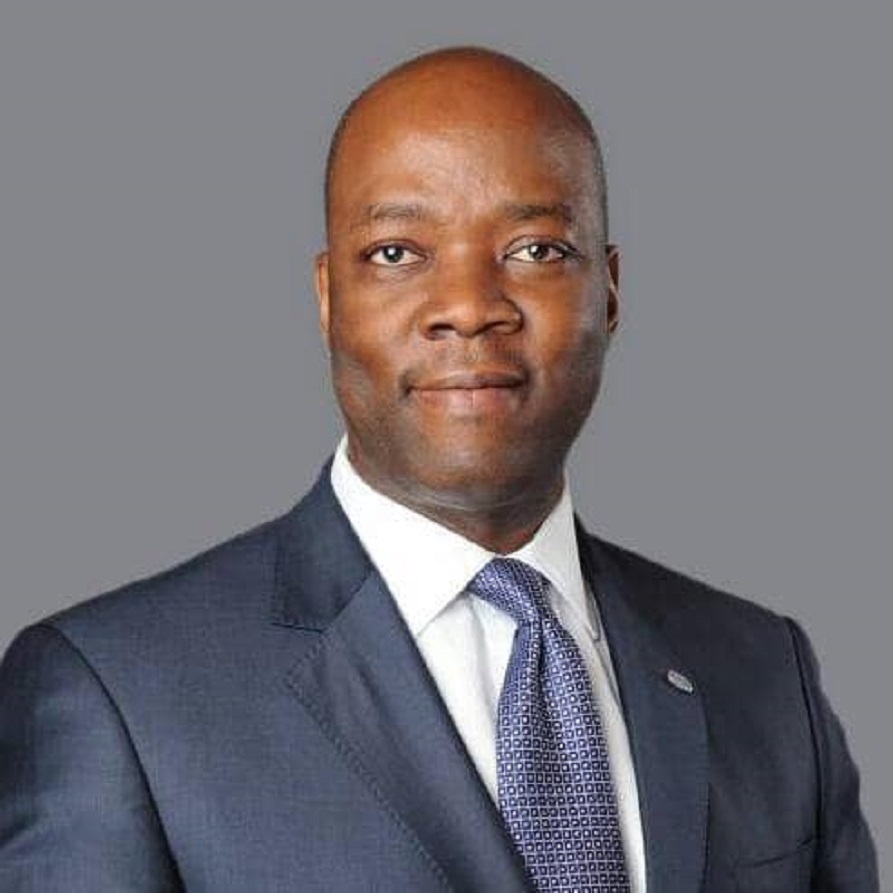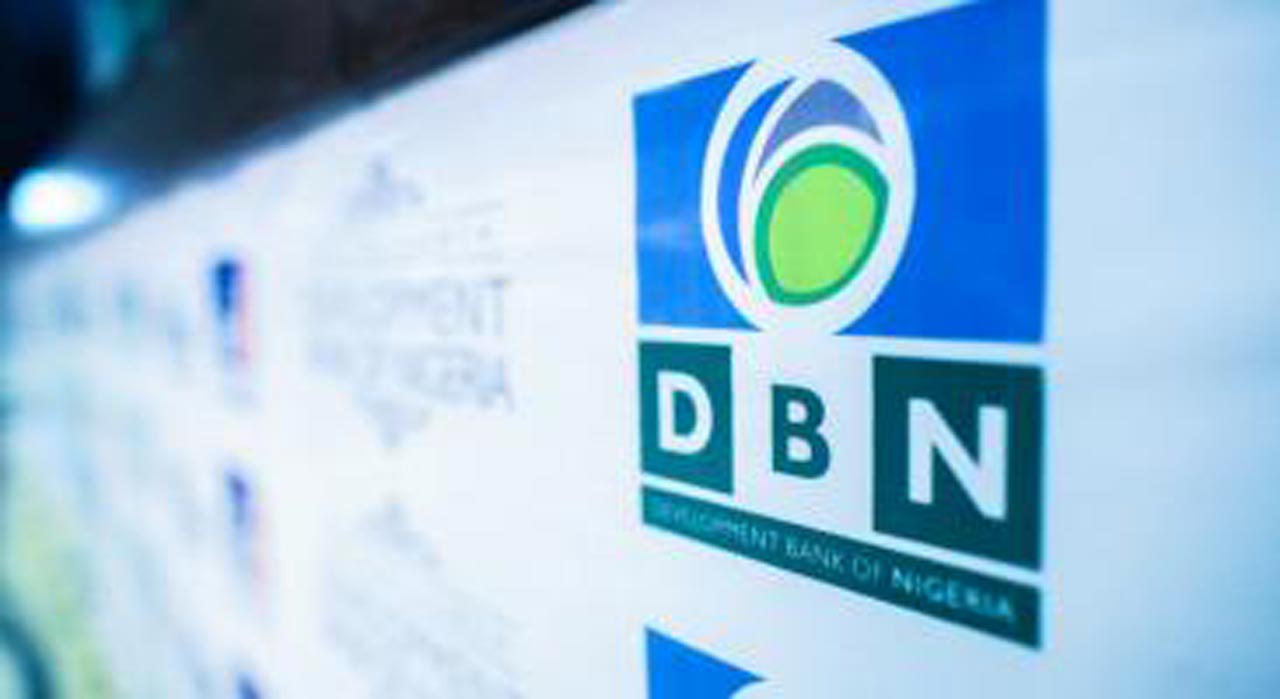Banking
Ecobank MD Hinges AfCFTA Success on Banks, Others

By Ahmed Rahma
If the African Continental Free Trade Area (AfCFTA) is to succeed as expected, then the financial services industry must be allowed to play a pivotal role.
This was the submission of the Managing Director of Ecobank Nigeria, Mr Patrick Akinwuntan, who said banks and other players in the sector have the ability to facilitate the liberalisation process.
According to him, the industry will be responsible for facilitating transactions, mobilising savings, allocating capital funds and monitoring managers so that the funds allocated will be utilised as envisaged, as well as managing risks.
“Nigeria banks have strong capital and their operating synergies have been tremendous for the past five years particularly in the digital banking space.
“Nigeria is a leading player on the continent in payments required to facilitate trade; mobilization of savings required to galvanize the economy; focus on the SME segment, which is the largest employer of labour especially in the critical industries such as Agriculture as Africa is a continent that is rich in commodities; education of our teeming population and health,” the banker said.
Mr Akinwuntan, while speaking at the webinar organised by Deloitte themed Exploring Nigeria’s Readiness for the African Continental Free Trade Area, urged financial institutions to adequately play their expected roles.
He said they would need to drive value creation by developing new technologies, scaling its payment infrastructure and methods to a pan African play to serve the diversified economies expected from the agreement.
“Africa’s financial services sector will also be relied on to provide the credit and support necessary for certain industries to move forward particularly the infrastructure and manufacturing sectors, which will be at the centre of Africa’s development goals following the AfCFTA enactment.
“Nigerian financial service industry has a basic platform to enable African financial services to contribute significantly to the trade area. The BVN innovation in Nigeria is unique, more like the social security number in the USA. NIBSS, the hub for payment systems in Nigeria is a strong base that is scalable to a pan African payment network.
“In terms of continental expansion, we are beginning to increased interest in Pan African banks. Ecobank with strong Nigeria content, is a lead player in this space, with presence in over 33 countries in Africa,” he stated.
Also speaking at the event, the Minister of Industry, Trade and Investment, Mr Adeniyi Adebayo, assured that the Nigerian government was irrevocably committed to the success of the AfCTA.
The Minister said the AfCFTA complements Nigeria’s export diversification aspiration as it provides preferential market access for Nigerian products and services in the vast African market.
“For Nigeria, the gains are significant. The AfCFTA would expand market access for Nigeria’s exporters of goods and services, spur growth and boost job creation, eliminate barriers against Nigeria’s products, provide a dispute settlement mechanism for stopping the hostile and discriminatory treatment directed against Nigerian, safeguard the Nigerian economy from dumping and unfair trade practices and support the industrial policy, among others,” he stated.
Banking
Access Bank Opens Branch in Malta to Strengthen Europe-Africa Trade Ties

By Modupe Gbadeyanka
To strengthen Europe-Africa trade ties, Access Bank has opened a new branch in Malta. It will focus on international trade finance, employing approximately 30 people in its initial phase, with plans for controlled expansion over time.
It was learned that this Maltese branch was established by Access Bank UK Limited, the subsidiary of Access Bank Plc, which is also the subsidiary of Access Holdings Plc, which is listed on the Nigerian Exchange (NGX) Limited.
Access Bank Malta Limited commenced operations after obtaining a banking licence from the European Central Bank (ECB) and the Malta Financial Services Authority (MFSA).
Access Bank said the licence marks a transformative milestone in bolstering Europe-Africa trade flows.
Malta, a renowned international financial centre, and a gateway between the two continents, is strategically positioned to play a pivotal role in advancing commerce and fostering economic partnerships.
This strategic expansion into Malta enables The Access Bank UK Limited to leverage growing trade opportunities between Europe and Africa.
It underscores the organisation’s commitment to driving global trade, financial integration, and supporting businesses across these regions.
“By establishing operations in Malta, we will gain a foothold in a market that bridges European and North African economies, moving us one step closer to our goal of becoming Africa’s Gateway to the World.
“It further enhances our bank’s capacity to support clients with innovative solutions tailored to cross-border trade and investment opportunities,” the chief executive of Access Bank, Mr Roosevelt Ogbonna, stated.
“Europe has emerged as Africa’s leading trading partner, driven by initiatives such as the Economic Partnership Agreements between the EU and African regions and the African Continental Free Trade Area (AfCFTA).
“With Europe-Africa economic relations entering a new phase, The Access Bank Malta Limited is ideally positioned to deepen trade and meet the financing and banking needs of our clients in these expanding markets,” the chief executive of Access Bank UK, Mr Jamie Simmonds, commented.
Also speaking, the chief executive of Access Bank Malta, Renald Theuma, said, “Malta is uniquely positioned as a bridge between Europe and Africa, making it an ideal location for our subsidiary. This move allows The Access Bank Malta Limited to engage more closely with customers in Europe and deliver tailored financial solutions that drive growth and connectivity across both continents.”
Banking
Goldman Sachs, IFC Partner Zenith Bank, Stanbic IBTC, Others to Empower Women Entrepreneurs

By Adedapo Adesanya
The International Finance Corporation (IFC) and Goldman Sachs have announced a new partnership with African banks, including Nigeria’s Zenith Bank and Stanbic IBTC Nigeria to support the Goldman Sachs 10,000 Women initiative, a joint programme launched in 2008 to provide access to capital and training for women entrepreneurs globally.
The two Nigerian banks are part of nine financial institutions from across Africa which have agreed to join the 10,000 Women initiative committing to leverage the business education and skills tools the programme provides to create more opportunities for women entrepreneurs across the continent by providing access to business education.
Others banks include Stanbic Bank Kenya, Ecobank Kenya, Ecobank Cote d’Ivoire, Equity Bank Group, Banco Millenium Atlantico – Angola, Baobab Group, and Orange Bank.
Speaking on this, Ms Charlotte Keenan, Managing Director at Goldman Sachs said – “10,000 Women has had a powerful impact to date, but we know that there are more women to reach and more potential to be realized.
“We are delighted to partner with IFC to supercharge the growth of women-owned businesses across Africa, and mainstream lending to female business leaders. We remain committed to supporting entrepreneurs with the access to education and capital that they need to scale.”
Since 2008, the 10,000 Women initiative has provided access to capital and business training to more than 200,000 women in 150 countries.
“This expanded initiative marks a significant step forward in creating equitable economic opportunities for women in Africa, enabling them to build stronger, more resilient businesses and to realize their entrepreneurial goals,” said Ms Nathalie Kouassi Akon, IFC’s Global Director for Gender and Economic Inclusion.
Goldman Sachs’ 10,000 Women initiative complements the Women Entrepreneurs Opportunity Facility (WEOF), launched in 2014 by Goldman Sachs and IFC as the first-of-its-kind global facility dedicated to expanding access to capital for women entrepreneurs in emerging markets.
Banking
Development Bank of Nigeria Wins Financial Inclusion Leadership Award

By Aduragbemi Omiyale
In recognition of its unwavering commitment to fostering access to financing for Nigerian micro, small and medium enterprises (MSMEs), Development Bank of Nigeria Plc has been rewarded with the Financial Inclusion Leadership Award at the Champions of Inclusion Nigeria Financial Inclusion Awards.
This was at the 2024 International Financial Inclusion Conference (IFIC) organised by the Central Bank of Nigeria (CBN) in collaboration with the World Bank and other stakeholders.
The chief executive of the lender, Mr Tony Okpanachi, said the recognition affirms the company’s efforts in expanding access to financial services for MSMEs in Nigeria.
“We are honoured to receive the Financial Inclusion Leadership Award, which is a testament to our bank’s commitment to expanding access to financial services for all Nigerians. This award recognises our efforts to bridge the financial inclusion gap, particularly for a priority sector like the MSMEs.
“Additionally, this award is a validation of our strategic focus on driving financial inclusion for small businesses, and we are proud to be at the forefront of this initiative that drives that. We will continue to innovate and expand our financial inclusion programmes, ensuring that more Nigerian small and startup businesses have access to services,” he stated.
On his part, the Chief Operating Officer of DBN, Mr Bonaventure Okhaimo, said the accolade demonstrates the firm’s dedication to driving financial inclusion and economic growth in Nigeria.
“This award acknowledges our Bank’s innovative approach to widening opportunities for MSMEs in Nigeria to grow and scale their businesses,” he said.
“This award will motivate us to continue pushing the boundaries of financial inclusion, exploring more innovative solutions and partnerships to expand our reach and impact.
“We are committed to ensuring that more small businesses and startup enterprises in Nigeria have access to financial services, this award will further inspire us to accelerate our efforts in this regard,” he stated.
-

 Feature/OPED5 years ago
Feature/OPED5 years agoDavos was Different this year
-
Travel/Tourism8 years ago
Lagos Seals Western Lodge Hotel In Ikorodu
-

 Showbiz2 years ago
Showbiz2 years agoEstranged Lover Releases Videos of Empress Njamah Bathing
-

 Banking6 years ago
Banking6 years agoSort Codes of GTBank Branches in Nigeria
-

 Economy2 years ago
Economy2 years agoSubsidy Removal: CNG at N130 Per Litre Cheaper Than Petrol—IPMAN
-

 Banking2 years ago
Banking2 years agoFirst Bank Announces Planned Downtime
-

 Sports2 years ago
Sports2 years agoHighest Paid Nigerian Footballer – How Much Do Nigerian Footballers Earn
-

 Technology4 years ago
Technology4 years agoHow To Link Your MTN, Airtel, Glo, 9mobile Lines to NIN





















